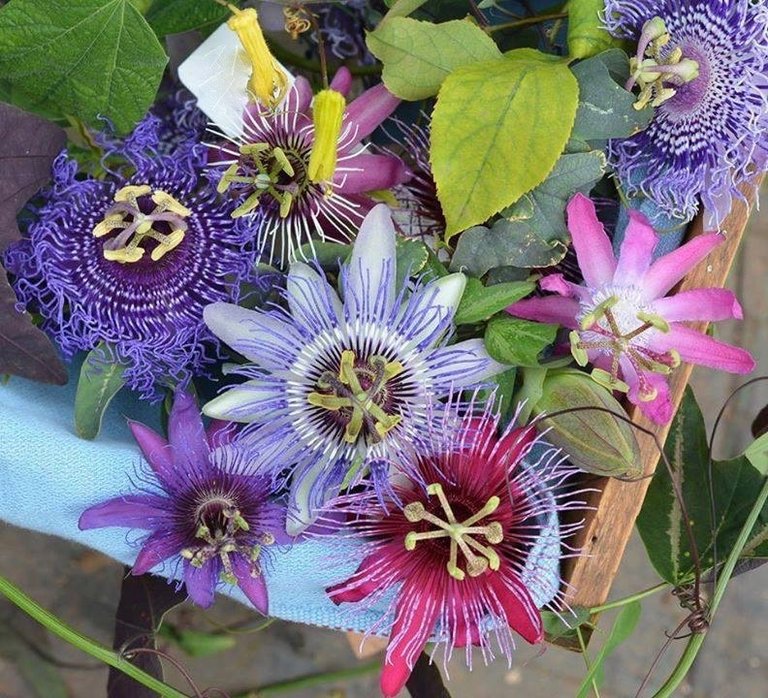
Passionflora is a beautiful vining plant that is a climbing herbaceous perennial, producing alluring flowers that will tantalize you with their scent, and will later produce edible fruit. These stems scramble over the ground, or clamber into the surrounding vegetation, supporting themselves by means of coiling tendrils. Some are faster growers than others. And some Passionflora fruits are more tasty than others. But do you know why I love Passionfloras?.............
Because BUTTERFLIES!!!!
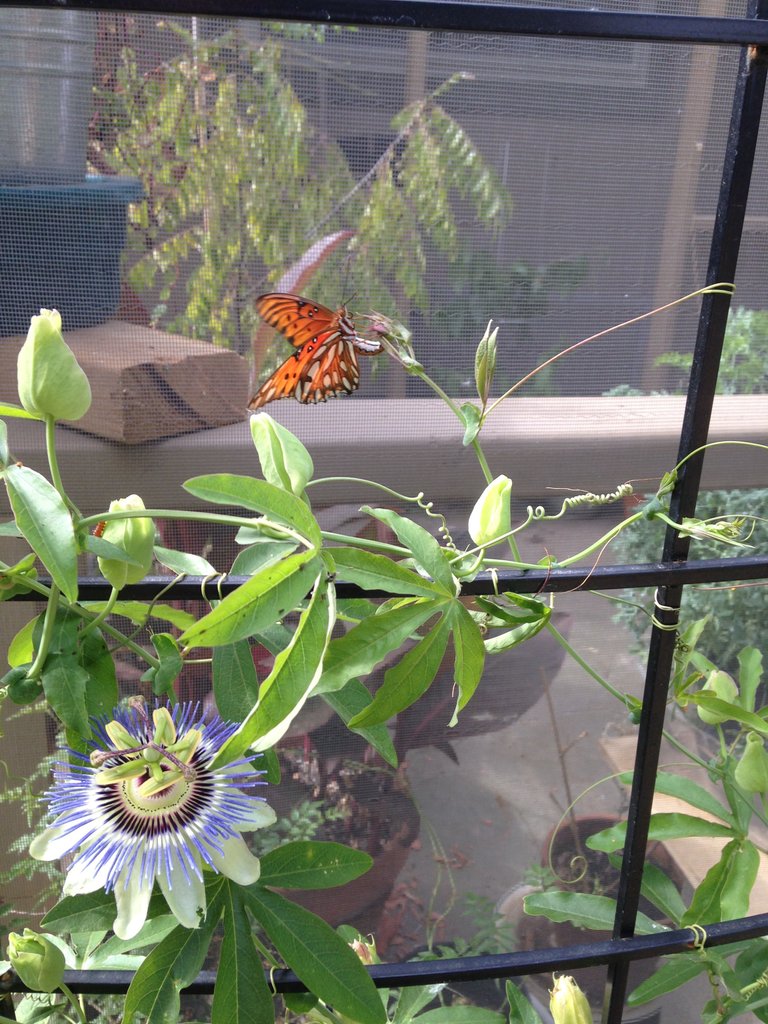
Passinvines are not only great for fruit for us, but they are essential for butterflies because they're a host plant. Whats a host plant you ask?? A host plant is the plant the adult butterfly needs in order to lay her eggs. Think of host plants as baby butterfly food. The egg is laid, in 7-12 days it will hatch, and the caterpillar will eat the leaves.
Here in South Texas, we have four butterflies that use this plant as a host plant. They are,
Gulf Fritillary (Agraulis vanillae),
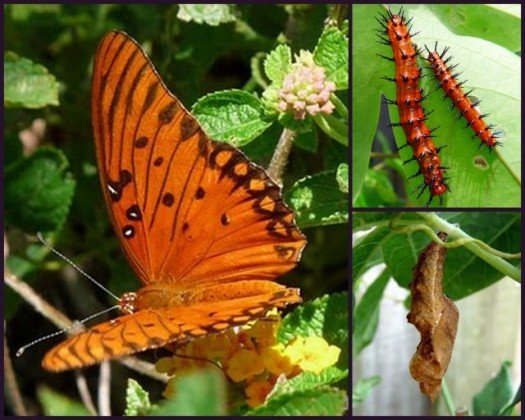
Zebra Longwing (Heliconius charitonius)
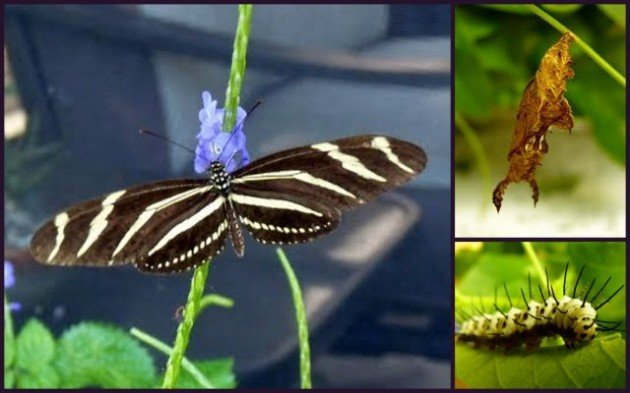
Julia (Dryas iulia)
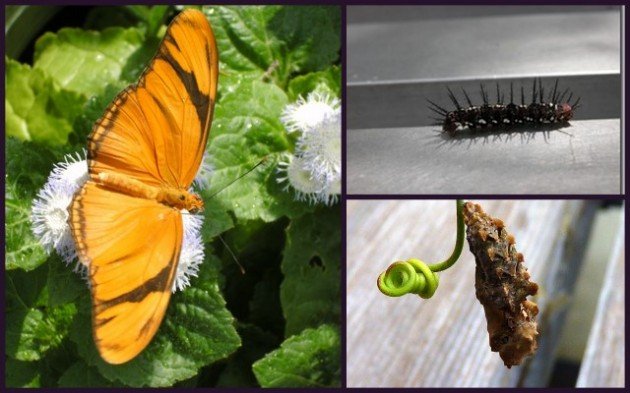
and Variegated Fritillary (Euptoieta claudia)
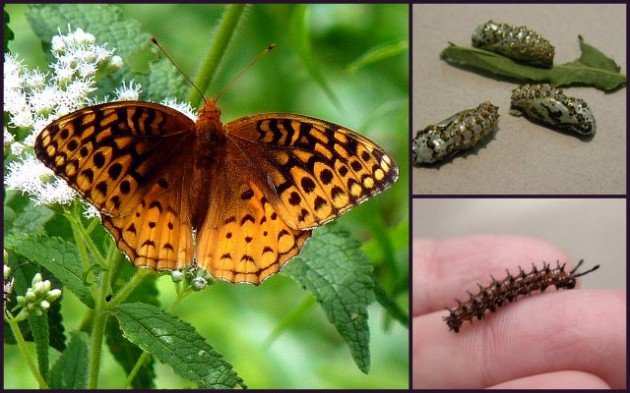
Passionfloras are wonder plants for all insects, and hummingbirds absolutely love them too. You can't go wrong with a Passionvine or two in your garden. For me, its more like twelve different species LOL. You can never have to many in my book. Over the next few days, as we wait patiently for the birth of our caterpillar, I will share with you each type of Passionvine I have and also propagate.
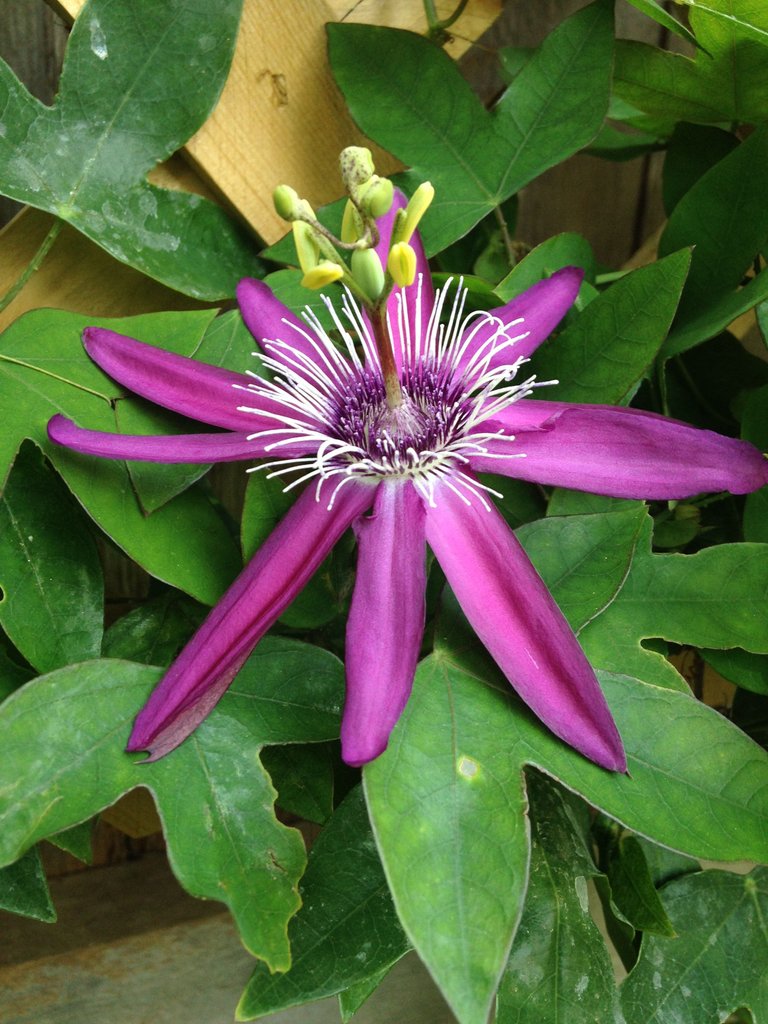
There are over 500 species of Passionflora, many are native right here in the US. Find out which ones are native to your area. Here in South Texas these are the native ones.
Yellow Passionflower (Passiflora lutea)
Bird wing Passionflower (Passiflora tenuiloba)
Bracted Passionflower (Passiflora affinis)
Maypop Passionflower (Passiflora incarnata)
Corona de Cristo Passionflower (Passiflora foetida)
One thing I must warn you about is, if you are planting for wildlife (butterflies), stay away from Red PassionVine, they are toxic! There are several types that are available, and only one type is safe. So unless you are absolutely positive on its ID, its better to just stay way from red blooms all togeather. If the caterpillar eats the leaves, they WILL die. Mama can not tell the difference from a safe or unsafe plant. To her, it all "taste" the same.
We have our first egg of the season for 2018. It is a Gulf Fritillary, and I plan to keep you posted every step of the way during its life cycle. I'm super excited to share this with you, while hopefuly also getting to teach you something new at the same time. So until next time, Peace, Love, and Butterflies✌🏼💝🦋🦋
Love the alien flowers and the beautiful butterflies. Like how you showed their stages too💗✌️
Thank you! I absolutely love Passionvine. And it’s a great bonus that it helps the Pollinators.
Congratulations @thenectarbar! You have completed some achievement on Steemit and have been rewarded with new badge(s) :
Click on any badge to view your own Board of Honor on SteemitBoard.
For more information about SteemitBoard, click here
If you no longer want to receive notifications, reply to this comment with the word
STOP